Table of Contents
Key Takeaways
- B-Vitamins and multivitamins are crucial for brain health and neurotransmitter synthesis.
- Acetylcholine’s role in ADHD can be supported with nootropics like ALCAR and CDP-Choline.
- Nootropics like Ashwagandha and Bacopa Monnieri help repair damaged neuroreceptors in ADHD.
- Noopept enhances cognition, memory, and provides neuroprotection.
- Combining specific nootropics with essential vitamins can optimize brain function for managing ADHD symptoms.
Depending on the severity of your ADHD symptoms, you may be able to use nootropics as an alternative to prescription stimulants like Adderall, Ritalin, Vyvanse and their variations.
I experimented for a year by using nootropics in place of the 20 mg of Ritalin I had been using 3-times a day for several years. And for the most part, I was successful in taming my Adult ADD symptoms.
Adult ADD Nootropic Stack
The ADD/ADHD stack I use includes:
- Mind Lab Pro
- Performance Lab® Energy – twice per day
- CDP-Choline – twice per day
- ALCAR – 750 mg 1-time per day
- L-Tyrosine – 500 mg 3-times per day
- Sulbutiamine – 400 mg twice per day
- Aniracetam – 750 mg twice per day
- Vinpocetine – 10 mg 3-times per day
- Performance Lab® Omega-3 – 3 GelCaps per day
- 1 tablespoon unrefined Coconut Oil or MCT Oil– 3-times per day
- Performance Lab® NutriGenesis Multi – 4 caps per day
During my one-year stimulant holiday, the ingredients in Mind Lab Pro along with L-Tyrosine, CDP-Choline, and ALCAR (included in Performance Lab Energy) kept my dopamine, norepinephrine, and acetylcholine levels high enough to maintain focus, motivation and improve my memory. Vinpocetine kept my brain blood flow at optimal levels. And Aniracetam and Sulbutiamine improved my mood.
But after a year I decided to go back to using 20 mg of Ritalin twice per day. Because my workload had me writing 10 hours per day. And maintaining working relationships with 2 or 3 clients at once.
By adding Ritalin back to my stack I was able to reduce the time it would take to complete a project from 3 days to 1 ½ days. Proof to me that my overall brain health couldn’t make it with nootropics alone.
The beauty of continuing to use L-Tyrosine, CDP-Choline, and ALCAR even after I started using Ritalin again was that I avoided the stimulant “crash” that is so common late afternoon when using stimulants. And I was able to reduce the original 20 mg Ritalin 3-times per day down to only twice per day.
And I have not experienced building up tolerance to Ritalin that is so common when using stimulants to treat ADD or ADHD.
Your situation may be different, or ADHD symptoms not as severe. Only you can decide if nootropics can replace ADHD meds. The stack I describe on this page is designed to be used with or without stimulant meds.
Whether you use this stack with meds or without, you’ll need to discover for yourself what dosages of each nootropic are ideal for you. Because the amounts that work for me may not work as well for you. You may need less NALT and/or ALCAR.
Experimenting is the key to success with nootropics. And knowing as much as you can about what’s going on in your brain that needs to be fixed. But after many years of recommending this ADHD nootropic stack to people just like us around the world, we know this works.
The pre-made nootropic stacks mentioned in this post include:
Prescription “Smart Drugs” vs. Nootropics for ADHD
This post is in response to many emails and questions I’ve been getting about how to treat Attention Deficit/Hyperactivity Disorder (ADHD) or Attention Deficit Disorder (ADD) with nootropics.
So if you are dealing with ADHD, hopefully this post will help. Especially if you are using stimulants like Ritalin, Adderall, Vyvanse, Focalin, or any of the other stimulant prescribed for ADD/ADHD. Or you are trying to deal with ADHD naturally by avoiding prescription stimulants.
This information can also help if you are a student or executive who uses prescription “smart drugs” like Adderall or Modafinil to boost productivity.
Here we’ll dig into the causes of ADHD or ADD in your brain. Symptoms associated with ADHD. And what you can do using nootropics, or nootropics stacked with stimulants to correct ADHD symptoms.
I’ll also include ways to potentiate the effectiveness of prescription stimulants with nootropics so they work better.
If you’ve never ‘officially’ been diagnosed with ADHD, but some of this resonates with you, you could be ADHD or ADD. And this may point you to some answers.
I’ve been ADD all my life. (ADD is ADHD without the hyperactivity). But it wasn’t until about 16 years ago, that a very wise psychiatrist identified what was going on. And why I had been struggling with focus and other problems with behavior. That no amount of self-help books on focus and management could ever correct.
Ritalin turned the lights on for me. And completely changed my life for the better. This was the seed that sprouted my interest in neuroscience and nootropics. And ultimately launching Nootropics Expert®
What is ADHD & ADD?
Attention Deficit/Hyperactivity Disorder (ADHD) or Attention Deficit Disorder (ADD) are associated with attention and executive function in your brain.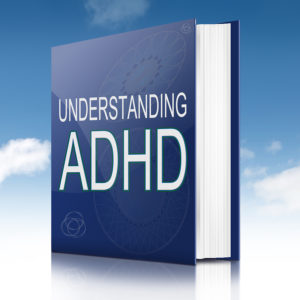
Your prefrontal cortex directs behavior, thought and feeling which are all associated with working memory. This fundamental cognitive function is what most “healthy” people take for granted, are what make up executive function.
This executive function and working memory give you the ability to:
- Regulate your attention
- Inhibit inappropriate behavior and thought
- Monitor your actions
- Plan and organize your future
If you can’t focus on the task at hand, blurt things out at inappropriate times, have little control over your emotions or actions, and can’t seem to stick to that careful set of goals you wrote down, you may be ADHD.
The Role of Norepinephrine and Dopamine in ADHD
Norepinephrine and dopamine are the primary neurotransmitters involved in ADHD because they play an essential role in attention and thinking.[i]
The “inattentive” type of ADHD is related to issues with the norepinephrine, and the “hyperactive and impulsive” type of ADHD is linked to dopamine dysfunction.
These two neurotransmitters work in concert to maintain alertness, increase focus, sustain thought, effort, and motivation. The only difference between the two is the presence of a hydroxyl group. And dopamine is the precursor to norepinephrine synthesis in your brain.[ii]
Much of what we read about ADHD focuses on dopamine’s function in your brain. But norepinephrine (NE) plays a critical role in activating your reaction to events. And how you respond to the event.[iii] NE is essential for collecting information coming in through your senses. And then modulating your brain’s response.
Any disruption in this NE system can result in ADHD, Post Traumatic Stress Disorder (PTSD), sleep disorders and more.[iv]
For example, NE working with postsynaptic α2-adrenoceptors (α2-AR) in your brain play an essential role in helping you focus and eliminate distractions when you’re paying attention to something.[v]
This is just one example of what goes wrong with ADHD brain function. My point in bringing this all up is not to overwhelm you with neuroscience.
But to make clear that simply suggesting too much or too little of a single neurotransmitter like dopamine cannot explain the complexity of ADHD.
So using a nootropic like L-Tyrosine to amp up dopamine in your brain is often not enough to take care of ADHD symptoms. Or using Adderall with someone who has a problem with alpha2-receptor binding with norepinephrine may not get much benefit.
This is the reason that experimenting with various stimulants and/or nootropics is often the only way to find a long-term solution to keeping ADHD under control. And why some respond better to a drug like Ritalin and not as well to Adderall. Or vice versa.[vi]
And recent research shows serotonin and acetylcholine are involved too. Mostly the “hyperactivity” part of ADHD which includes movement, inattention, and impulsivity.[vii]
Smart Drugs Used to Treat ADHD Symptoms
If you are truly and clinically ADHD or ADD, it is unlikely that optimizing your diet, getting plenty of sleep, using nootropics, and exercising regularly will get the symptoms of ADHD under control.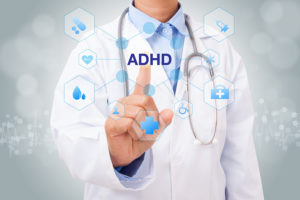
The most severe forms of ADHD often benefit from using prescription medication. Otherwise known as “smart drugs” in some circles, these meds are typically amphetamines or methylphenidate.
The amphetamine-class of ADHD prescription drugs includes Adderall (75% dextroamphetamine salts and 25% levoamphetamine salts), Dextroamphetamine, and Vyvanse (Lisdexamfetamine).
The methylphenidate-class of ADHD medications includes methylphenidate (Ritalin) and its variants like Concerta, and Focalin.
Adderall and Ritalin both work with dopamine and norepinephrine in your brain. But through different mechanisms of action.
Ritalin is a pure uptake inhibitor of dopamine and norepinephrine without any other presynaptic activity.[viii] Adderall on the other hand, has additional presynaptic activity, releasing dopamine and norepinephrine from presynaptic neurons.
The idea for the last 60 years or so, has been if we could boost dopamine and norepinephrine in the brain, ADHD symptoms would go away. As long as we’re taking the medication.
Why Prescription Attention Deficit Hyperactivity Disorder Meds Often Don’t Work
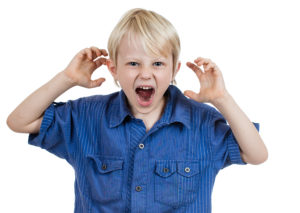 In an ideal world, taking one pill 2 or 3 times a day to treat ADHD would put your life back on track. And help you function like a ‘normal’ person.
In an ideal world, taking one pill 2 or 3 times a day to treat ADHD would put your life back on track. And help you function like a ‘normal’ person.
But real-world results often don’t work out as well as theory. For several reasons. For example, what if there’s not enough dopamine or norepinephrine in your brain in the first place? Then stimulants will not work as well as planned because they haven’t the neurotransmitters in place to work with.
You could also have problems with not enough or damaged neuroreceptors. Natural aging processes can slow blood flow or inhibit the production of neurotransmitters. A lack of acetylcholine could prevent your neurotransmitters from doing what they were designed to do.
This is where nootropics can help save the day in treating the symptoms of ADHD.
Optimizing Dopamine & Norepinephrine
 One of main culprits contributing to ADHD symptoms is a lack of dopamine (DA) and norepinephrine (NE) in your brain. Or your brain is not using the available DA and NE effectively.
One of main culprits contributing to ADHD symptoms is a lack of dopamine (DA) and norepinephrine (NE) in your brain. Or your brain is not using the available DA and NE effectively.
Stimulants like Adderall and Ritalin work to boost levels and use of these two critical neurotransmitters.
Production of dopamine and norepinephrine in your body and brain follows this metabolic pathway:
Phenylalanine → Tyrosine → L-DOPA → Dopamine → Norepinephrine
Dopamine is converted to norepinephrine by the enzyme dopamine β-monooxygenase, with O2 and ascorbic acid (Vitamin C) as cofactors.
Norepinephrine can be further converted into epinephrine by the enzyme phenylethanolamine N-methyltransferase with SAM-e as cofactor.
Nootropics to boost dopamine include:
-
-
- L-Tyrosine – L-Tyrosine is the precursor to producing dopamine in your brain. L-Tyrosine enhances working memory, executive function, creative flow states, reduces stress, improves mood and is anti-anxiety.
Suggested dosage of L-Tyrosine for ADHD is 350- 500 mg twice per day. I successfully stack 500 mg of NALT or L-Tyrosine 3-times per day. Once each time I dose with Ritalin, and a last dose mid-afternoon to prevent a stimulant crash later in the day.
- Mucuna Pruriens (L-Dopa) – Mucuna works as an antioxidant and heavy metal chelator, improves memory & cognition, reduces depression and boosts libido. L-Dopa is also the direct precursor to dopamine. Suggested dosage of Mucuna Pruriens is 250 – 500 mg per day.
But if you’re just starting out with nootropics, I highly recommend using L-Tyrosine or NALT instead of Mucuna Pruriens. Because Mucuna can be more difficult to dose since it directly stimulates the production of dopamine. L-Tyrosine and NALT are more ‘forgiving’ when it comes to dosage.
- Phosphatidylserine (PS) – PS can help improve alertness, attention, cognition, memory, recall and mood, and lower anxiety. All issues associated with ADHD. Phosphatidylserine is a phospholipid component of the membrane encasing every one of your brain cells. PS helps maintain the fluidity and permeability of brain cells. Improving the flow of dopamine and acetylcholine. Suggested dosage of PS is 1—mg 3-times per day.
- Pine Bark Extract – Pine Bark extract helps prevent decreases in dopamine and norepinephrine. And the glutathione (GSH) and GSH-disulphide reductase (GSSG-R) ratio. Neurotransmitter problems which contribute to hyperactivity in ADHD. Pine Bark extract also helps boost blood flow in the brain by increasing nitric oxide which helps dilate blood vessels. And it helps reduce oxidative stress, membrane damage, DNA damage, inflammation, and glycation.
I’ve found one of the most potent forms of Pine Bark extract comes in both Mind Lab Pro® and Performance Lab® Mind.
- L-Tyrosine – L-Tyrosine is the precursor to producing dopamine in your brain. L-Tyrosine enhances working memory, executive function, creative flow states, reduces stress, improves mood and is anti-anxiety.
- N-Acetyl L-Cysteine (NAC) – NAC is an amino acid that regulates the amount of glutamate and dopamine in your brain. NAC can be used to treat the symptoms of ADHD. And even helps eliminate some of the negative side effects associated with prescription ADHD stimulants. Suggested dosage of NAC is up to 600 mg 3-times per day.
A word of caution here in boosting the catecholamines dopamine and norepinephrine. Too much of either is not a good thing. In fact, excess levels of either will throw your neurotransmitter levels out of balance. And can cause anxiety, insomnia and panic attacks.
Taming Hyperactivity with Nootropic Supplements
The “H” in ADHD stands for hyperactivity. Boosting levels of dopamine and norepinephrine can help balance out hyperactivity. And help calm and focus your mind. But often simply boosting or balancing these neurotransmitters is not enough.
Recent studies show that serotonin and dopamine interaction also play a role in ADHD.[ix] Serotonin is involved in the uptake, synthesis and breakdown of dopamine in your brain. Problems with serotonin seem to contribute to behavior and impulse control.
Much more research needs to be done in this area of ADHD. But we can help control and balance serotonin with nootropics.
- 5-HTP – This amino acid is synthesized from the amino acid tryptophan. And 5-HTP is the immediate precursor to serotonin in your brain.5-HTP can help relieve anxiety and depression, fibromyalgia, insomnia, migraines and likely the hyperactivity, depression and anxiety associated with ADHD. Suggested dosage of 5-HTP is 50 mg up to 3-times per day. Please see my dosage notes and warnings before you try supplementing with 5-HTP.
-
-
- Ginseng – Ginseng helps calm anxiety, and boost attention, concentration and memory. Ginseng provides neuro-protective effects on the dopaminergic-pathway which can help with ADHD. And ginseng is a serotonin and norepinephrine reuptake inhibitor (SNRI).Suggested dosage of Ginseng is 100 – 400 mg per day.
-
- L-Theanine – L-Theanine commonly found in green tea helps boost alpha and theta brain waves, is anti-anxiety, boosts cognition and memory and reduces insomnia. L-Theanine also helps boost GABA, serotonin and dopamine levels in your brain. Suggested dosage of L-Theanine is 150 mg 2 – 3-times per day.
-
- Rhodiola Rosea – Rhodiola Rosea helps improve alertness, energy, memory and mood, is anti-anxiety and antidepressant, reduces fatigue and boosts memory and concentration. Rhodiola influences serotonin and norepinephrine levels in your brain. Suggested dosage of Rhodiola Rosea extract is 150 – 200 mg per day.
-
- Saffron – Saffron acts as a dopamine and norepinephrine reuptake inhibitor. Similar to how Ritalin works. A randomized double-blind study was conducted with 54 children 6-17 years old who were given 20 – 30 mg methylphenidate or 20 – 30 mg Saffron per day for 6 weeks. At the end of the study researchers concluded, “Short-term therapy with a saffron capsule showed the same efficacy compared with methylphenidate.” Suggested dosage of Saffron is 30 mg per day.
-
- Vitamin B6 (Pyridoxine) – Vitamin B6 helps your brain make serotonin, norepinephrine and melatonin. Suggested dosage of B6 is up to 100 mg per day.
-
- Vitamin B9 (Folate) – Folate (NOT folic acid) as a nootropic helps your brain make dopamine, epinephrine, norepinephrine and serotonin. Suggested dosage of Folate is 400 mcg per day.
-
- Vitamin B12 (methylcobalamin) – is a cofactor in the synthesis of neurotransmitters acetylcholine, dopamine, GABA, norepinephrine, and serotonin. Suggest dosage of B12 is 100 mcg per day.
B-Vitamins are Critical in Controlling ADHD
Take note that several of the B-Vitamin group are involved in the production of the neurotransmitters involved in ADHD. I recommend adding a good B-Vitamin Complex that include methylfolate (not folic acid) and methylcobalamin (not cyanocobalamin) to your stack. Both in a pure nootropic stack as well as when using any of the ADHD prescription stimulants.
But it’s not only the B-Vitamins that are required for a healthy, fully functioning brain. We also need each of the 13 vitamins and 13 minerals needed for everything from blood flow, neurotransmitter synthesis and release, brain signaling, and neuroprotection.
I’ve found the easiest way to make sure my ADD brain gets all the vitamins and minerals it needs every day is to also use a multivitamin/mineral supplement.
The best I’ve found so far is the multivitamin called Performance Lab® NutriGenesis Multi. It’s better than the “raw-food” multi I was using for years. And makes a difference I can actually feel.
But please note that this multi is in addition to a B-Vitamin Complex because the ADHD brain needs more of these critical nutrients than what is normally in any good multivitamin.
The Role of Acetylcholine in ADHD
Researchers at Vanderbilt University Medical Center discovered that there are three types of ADHD.
We’ve already covered the “inattentive” type that is related to issues with the norepinephrine transporter gene. And the link to the dopamine transporter gene in the “hyperactive and impulsive” type.
But the research team now report that a variation in the choline transporter gene is associated with a “combined” type of ADHD. Symptoms include both inattention and hyperactivity/impulsivity.
Choline is required to synthesize acetylcholine (ACh) which is needed for memory, motor-control, focus, learning, concentration, and cognition.
If you have the “combined” type of ADHD it’s likely due to a mutation in this choline transporter gene variation.
Nootropics to boost acetylcholine include:
- ALCAR (Acetyl-L-Carnitine) – ALCAR donates am acetyl group in the presence of Coenzyme-A for the synthesis of acetylcholine. And it’s also a shuttle transport for fatty acids through brain cell membranes. It shuttles fatty acids into mitochondria for ATP synthesis, and shuttles toxic byproducts out.
Research from the Linus Pauling Institute shows ALCAR will restore mitochondrial function, replenish age-related changes to mitochondrial structure, and helps replenish acetylcholine levels to your brain and body.
And other studies show that ALCAR stimulates nerve growth factor. Helping support survival and growth of neurons. Which is particularly important for the ADHD brain and especially when using prescription stimulants that may be tough on neurons.
- Alpha Lipoic Acid (R-LA) – Alpha Lipoic Acid increases acetylcholine production by activation of choline acetyltransferase and increases glucose uptake. This process supplies more Acetyl-CoA for the production of acetylcholine.
Alpha Lipoic Acid enhances insulin-stimulated glucose transport and metabolism for better brain cell performance. And R-Lipoic Acid provides strong antioxidant support because it helps regenerate and recycle existing antioxidants in your brain including Vitamins C & E, glutathione, and CoQ10.
I’ve since switched the ALCAR supplement in my ADD stack to Performance Lab® Energy because this pre-formulated energy stack contains my preferred dose of ALCAR. But note that I also take another 500 mg of ALCAR with L-Tyrosine late afternoon to prevent a stimulant crash.
Performance Lab® Energy also contains Alpha Lipoic Acid and ALCAR which helps my ADD brain produce acetylcholine.
- CDP-Choline (Citicoline) – Citicoline helps synthesize phosphatidylcholine (PC), a major phospholipid found in brain cell membranes. And provides choline for the synthesis of acetylcholine while providing antioxidant activity.
The CDP-Choline (Citicoline) in my ADD stack is supplied by Mind Lab Pro® which is the base of my nootropic stack.
But a suitable alternative to MLP is Performance Lab® Mind which contains the branded form of citicoline called Cognizin®.
Performance Lab® Mind and Mind Lab Pro® also contain L-Tyrosine, Phosphatidylserine (PS), and Maritime Pine Bark extract.
Repairing Neuroreceptors Needed to Control ADHD
One of the issues with neurotransmitters and ADHD are damaged or non-existent receptors. Dopamine, norepinephrine and serotonin have less receptors to bind to for cognition and mood control.
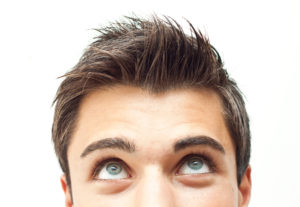
Once again, nootropics come to the rescue in helping control ADHD. You can add one of these nootropics to your stack to help boost neuron and receptor health.
- Ashwagandha – This adaptogen, Ashwagandha helps reduce anxiety and depression. And helps reconstruct axons, dendrites and synapses involved in neurotransmitter signaling in your brain. Suggested dosage of Ashwagandha extract is 250 – 500 mg per day.
-
- Bacopa Monnieri – Bacopa helps boost memory and cognition, improves mood, and reduces stress. This adaptogen affects brain levels of acetylcholine needed for neurotransmitter signaling. And the two active components of Bacopa Monnieri called bacosides A and B not only improves signaling of electrical impulses between neurons in your brain. Bacosides also help rebuild damaged neurons. Suggested dosage of Bacopa is up to 450 mg per day.
-
- Lion’s Mane – Lion’s Mane Mushroom is known for stimulating Nerve Growth Factor, improving cognition and memory, and relieving depression. Lion’s Mane stimulates the repair and creation of neurons in your brain. Neurons needed for dopamine and norepinephrine to control ADHD. Suggested dosage of Lion’s Mane Mushroom starts at 500 mg per day. Note: that there’s an effective 500 mg dose of Lion’s Mane full-spectrum fruiting body in each dose of Mind Lab Pro®
-
- Noopept – Noopept helps boost cognition, memory, learning, perception, logical thinking and mood. Noopept increases Nerve Growth Factor, and Brain-Derived Neurotrophic Factor (BDNF) critical for neuroplasticity and Long-Term Potentiation critical for long-term memory. Noopept also prevents the release of excess glutamate in your brain. Providing potent neuroprotection for neurons and reducing damage. Suggested dosage of Noopept is 10 – 30 mg per day.
Please note that I haven’t linked through to supporting clinical studies for each of the nootropics I listed above. But you can click through to my full review of each nootropic for extensive research supporting each supplement.
Nootropics for Kids
ADHD and ADD is most often diagnosed in children. The latest statistics (2011) from the CDC in the USA shows about 11% of children 4 – 17 years of age (6.4 million) have been diagnosed ADHD.[x] And that’s just for the USA.

Although ADHD is usually first diagnosed in children, it often lasts into adulthood. I sometime wonder how my life would have been different if I had been declared ADD when I was a kid.
But it wasn’t until the late 1960’s that the American Psychiatric Association formally recognized ADHD as a mental health disorder. I wasn’t declared Adult ADD until much later.
The thing is many parents are wary about putting their children on powerful, prescription ADHD meds. Kids’ brains continue to develop until your early 20’s. So is it a problem messing with brain chemistry at such a young age? Only time will tell and if the benefits outweigh any potential risk.
Hence the reason why parents are looking for ‘natural’ alternatives like nootropics to treat ADHD in children. But are nootropic supplements any safer than prescription stimulants?
Common sense tells me that using L-Tyrosine could be safer than Ritalin for boosting dopamine. And Rhodiola Rosea could be safer than stimulants or antidepressants for taming hyperactivity.
But many children with ADHD, natural supplements may not be enough. I’m not a doctor, and don’t even play one on TV. I’m an ordinary biohacker who has learned as much as I can to help myself. And fix my own cognitive performance issues. Including Adult ADD.
So I highly recommend you find and work with an open-minded psychiatrist with your child. You may be pleasantly surprised to find you may be able to reduce or eliminate prescription ADHD meds altogether to enhance cognitive functions. And maybe not. But the long-term health of your child could be worth the time investment to find out.
In Summary
I’ve been wanting to write this post since I started Nootropics Expert®. If you are ADHD or ADD, I hope you found this useful. And I’d appreciate your feedback, and share your experience with treating ADHD with nootropics in the comments section of this post below.
Please share this post with anyone you think would benefit. Including discussions about nootropics for ADHD on reddit or Longecity.
One final note. Neurotransmitter balance is key to taming ADHD. I strongly caution you to take it slow if you’re just starting out with nootropics. Carefully read each of the extended articles in the List of Nootropics you are considering trying.
You need to be careful about side effects, prescription drug interactions, dosages and how your body reacts to each supplement to ensure healthy brain function.
But I’m confident that with careful planning and a long-term commitment, your cognitive enhancement will be just as successful as I have been in living and thriving with my Adult ADD.


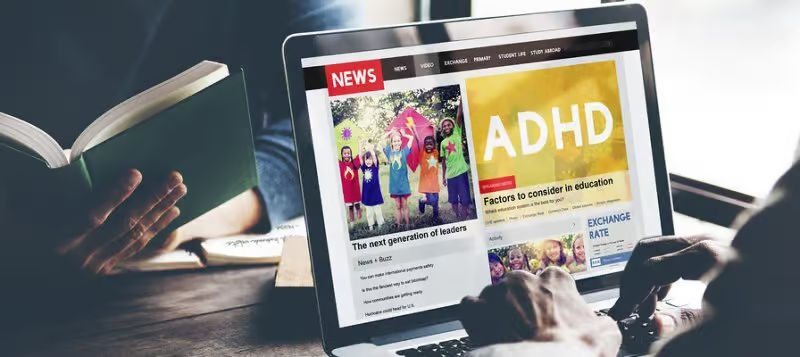





Join The Discussion - 863 comments
Jean-Philippe Raymond
October 10, 2019
Hi David,
JP here needing advice again for my son.
He’s on
Aniracetam 2x 750
Citicholine 200 1x morning
Sulbutiamine 1x morning
PS 2x per day
L-carnosine 1x
PQQ 1x
Lithium orotate 1x
Vit C,
B complex + magnesium
Omega3 + Gla + PC
Anxiety is under control but we have a bit of a struggle with his attitude. Like “I don’t care” lack of participation…
We also have ADD like symptoms very difficult to focus…
From what I notice trying piracetam before aniracetam seams piracetam had more effect than aniracetam.
Do you have any advice.
Best regards
Jean-Philippe
David Tomen
October 10, 2019
JP, If you’ve already had more luck with Piracetam then I suggest switching back to it. But increase your dosage of Citicoline so that you’re taking it each time you dose Piracetam.
For ADHD symptoms follow some of the suggestions in this post including raising dopamine with L-Tyrosine. And a high quality multivitamin.
JP
October 19, 2019
Hi David,
Just for feedback
L-tyrosine made a huge difference on the mood for our son. I’ll keep that one for sure. Helps him in school also it put him back on the right track.
I yould like to know what you suggest for hyper activity. It’s not my oldest son but my second son who’s more on the high speed track…
Sugar are a problem for him so he’s on a low carb diet + enzymes and we manage his high energy that way but some time still he gets on the high gear and he’s unable to manage his emotions and he gets a bit impulsive…
I think you wrote a bit about it for moa-b m’I right ?
Any advice
Thanks
David Tomen
October 21, 2019
JP, hyperactivity seems to be a problem with the balance of dopamine, norepinephrine and serotonin. See the “Taming Hyperactivity” section of this post here: https://nootropicsexpert.com/best-nootropics-for-adhd-add/#taming-hyperactivity. I suggest experimenting with some of the nootropics described in that section.
Archie
September 30, 2019
Hi David,
I see that you recommend ALCAR or CDP-choline for boosting Ach. Can I use Phosphatidylserine instead?
And, for repair, you have suggested Lion’s Mane. Can I use PS again or PQQ, instead? Any other alternatives?
David Tomen
September 30, 2019
Archie, ALCAR is involved in the synthesis of acetylcholine and CDP-Choline directly increases this neurotransmitter. Please read the reviews of each and understand their mechanism of action of how each one works in the brain. So you have a better understanding on how each works to increase acetylcholine. Phosphatidylserine (PS) also provides choline as needed to produce ACh. Each works very differently not only in how they work, but in how they work with your unique system.
So I cannot directly answer your question for ACh. One or two of them will work better for you. But the only way to find out is to try each one.
For repair, Lion’s Mane helps boost Nerve Growth Factor for neurogenesis. PS and PQQ do not increase NGF. They can be used for brain repair but each again has a very different mechanism of action.
Archie
September 30, 2019
Thanks for the Reply, David!
I think I was confused because PS and PQQ articles also mention NGF. Are there any alternatives to Lion’s Mane for boosting NGF?
Much appreciated!
David Tomen
October 1, 2019
Archie, this post has most of the other nootropics that promote NGF and/or BDNF: https://nootropicsexpert.com/13-nootropics-to-boost-bdnf/
I thought of my response to you earlier today. And what I should have included was all of the nootropics reviewed here help repair the brain one way or another.
Archie
October 2, 2019
Great. Thank you!
CG
September 26, 2019
Hi David, i’ve been abusing Adderall for a week now and want to stop without crashing. I just started taking l-tyrosine 500mg in the morning on an empty stomach, Mucuna L Dopa 20 in the morning after I take adderall and Magnesium Chelate to alleviate the body aches. How do I go about stopping adderall without the crash? I don’t need to stop cold turkey since I still have some pills left.
David Tomen
September 27, 2019
CG, you’re not going to be able stop Adderall without some kind of side effect. My advice for using L-Tyrosine applies to those using Adderall or Ritalin in ordinary therapeutic dosages for ADD or ADHD. And not recreational use. The idea is to replace dopamine or provide non-existent dopamine so the stimulants have something to work with. And making sure enough dopamine and acetylcholine is available for the brain to use once the Adderall wears off.
In your case follow the dosage recommendations in this post and carefully wean yourself off.
Claudia
September 19, 2019
Dear David, Thank you so much for helping and advising so many people. That is so great of you..!
I am very impressed what you are able to achieve with your ADD.
Here comes my story…
Its quite the story..and very personal too but I am open and would like you tot see the whole picture.
I grew up in a very unstable unsafe home, father being alcoholic and abusive and mother being borderline and needed me to be there for her. Lot of trauma’s along the way to adulthood cause I am “programmed” to take care of somebody other then myself.
During my marriage of 16 years with a person who was very introverted and often depressed I also grew more and more depressed. It was like the immediate dangers were no longer there but I was still in survival mode. I have been under stress and really life threatening periods in my life (especially between 16 and 18).
What became very apparent when I started to work as an activity coordinator and a coach for psychiatric patients was that It was hard for me to focus (when in office with lot of co workers (10-30) and also did not know who to prioritize. And than on top of that I was giving myself messages I wasn’t good enough. And of course I started to procrastinate and this is something I have been doing ever since, this pattern. This makes me feel very depressed and stuck.. I do have a successful company (as a tribute artist) but don’t look at my paperwork or how I am packing my bags to go to a show.
Since 3 1/2 years I left my ex husband and than I moved from one temporary place to the other, and in the mean time my mom was diagnosed with cancer, I stood by her side night and day. She passed 5 months ago.
Finally I have time for me ..but since december I am diagnosed (I thought I might have it..) as being ADHD combined with ADD. Wow everything falls in place indeed… and I am VERY proud how I was able to have done the thing I was able to do.. now I need to unlearn not to be so hard on myself…my days are like ..really getting nothin done..and I have so much potential.
My performances are brilliant if I say so myself but I perform once a week so the other weeks I am just procrastinating almost everything and I feel a lot of tension…I don’t know how to prioritize…
I have gone to a big (yukkk…) mental health organization cause the one that diagnosed me only wanted to give my training and coaching to deal with the ADHD/ ADD if I took Dex but I did not want that, I feel like a zombie and could not ride my car and needed to go to mom and my work.
Anyhow the organization now after a few talks gave me two other labels ” Borderline and dependent personality.
I myself and my ex husband and my coach (who I now have since december and payed out of my own pocket but now get a budget from the city government since 2 months..! yes..! but this only lasts a half year and only 2 hours per week)
Well we all don’t see that I have these disorders. Its very very far fetched..and not true.. does not really make me happy..also but okay it does make another interesting chapter in one the books I want to write..:)
I am going to all I can to get that label not in my medical record..I really just want to heal the trauma’s and learn how to live with my ADHD and ADD.
And yes I also bought some nootropics and most I just took a few weeks (and forget them also often…:(and I still have bottles left of:
Ashwaganda 500 mg (healthy vitamins)
Rhodiola Orpin (Natures Garden) 250 gram
and Rhodiola 400 mg (swanson)
Mucuna Pruriens 400 mg (swanson)
I just bought DMAE powder (and found you through googling this)
And N – Acetyl L- Tyrosine both from Bulkpowders.
I see your stack and its quite a stack..and I already forgot the once I already have and also not sure how do you know what works..if you start with different things (this was also the problem I had with the things I bought..
I do experience mediation/ exercise and eating healthy (i do drink coffee, 2 in the morning and eat cheese and chocolate few times a week) vegetables, fruit, drink loads of camomile tea also is helpful.
But generally I feel tensed (shoulders like rocks, and chaotic and foggy).
What would you suggest as a starting stack and what to do with the nootropics I already have?
THANK YOU so much..!
David Tomen
September 21, 2019
Claudia, the very least you can do for controlling ADD symptoms is taking care of dopamine, acetylcholine and brain cell signaling. And you do that with N-Acetyl L-Tyrosine 500 mg 3-times per day, 500 – 800 mg Acetyl L-Carnitine (ALCAR) 3-times per day, and 300 mg Alpha GPC 3-times per day.
And if you plan on using DMAE you need to use Alpha GPC anyway. For the other things you already have please follow dosage recommendation that you’ll find under each individual review here on Nootropics Expert.
Daniel
September 19, 2019
This article was highly interesting. I was diagnosed with ADD (not ADHD) and was prescribed Ritalin (Methylphenidate) in 7th grade and I still suffer from it (I’m 24). In the meantime, I’ve got my life in order and dose 20-30mg of Ritalin in stressful times, 10mg in less stressful times.
I recently took 30 mg daily, and it did affect my mood negatively.
In addition to that, I get enough Omega 3 (I eat lots of nuts), have a good diet / exercise program. I will start to supplement with a Vitamin B Complex. I take Ginko Bilboa and L-Theanine (with Caffeine) almost daily. I also own Creatin, Zinc and Magnesium (for better sleep).
What would you suggest for a less pricey stack in addition to my 10 mg Ritalin (Methylphenidate), that I can take daily? I’m worried about building up tolerances to the several supstances and therefore making my problems worse.
David Tomen
September 21, 2019
Daniel, don’t worry about tolerance as long as you are following recommended dosages. The Adult ADD brain is starved of dopamine and acetylcholine. At the very least you should be using L-Tyrosine or NALT along with ALCAR and possibly Alpha GPC or CDP-Choline. Using the dosages and timing as described in this post.
Daniel
September 22, 2019
Thank you for your answer!
So, you would recommend to take NALT and ALCAR on a daily basis (Monday-Sunday) in addition to Ritalin (Methylphenidate). Did I understand that right?
The reason I asked is because I read informations on quickly developing tolerances for NALT. And I heard of cycling some nootropics.
Would it still be possible to take Caffeine+L-Theanine or Ginko Bilboa quite regularly?
David Tomen
September 22, 2019
Daniel, if you are ADD or ADHD and using Ritalin your brain needs dopamine and acetylcholine. I dose it 3-times per day; morning, noon and 4 pm. The last dose prevents the stimulant crash.
I think most people that worry about ‘tolerance’ are looking for effects that are not related to what we’re trying to achieve. And that’s simply a normal, working, functioning brain.
The Caffeine + L-Theanine combo is usually taken as needed. And Ginkgo is used daily long-term following dosage recommendations.
Barbara Christensen
September 13, 2019
Hi David! I have been watching a lot of your videos over the last several days. I find them fascinating, as a new self-learner of nootropics. I’m researching nootropics that would be best for my 17 1/2-year-old senior in high school who has been having a difficult time concentrating in high school. He said that he “spaces off” and is often very tired. He has asked to be put on something like Adderall to help him focus. But, I don’t want to go that route. He has recently been caught vaping Juul heavily. We are giving him a nicotine test weekly to make sure he stays off of it. He feels like he needs it and didn’t want to quit…Which I am sure plays into his tiredness and moodiness. He also drinks a few Bang (300mg caffeine) drinks a few times a week before he works out which I think is way too much caffeine for pre-workout.
Anyway, I am overwhelmed with all of the Nootropic choices. Coincidentally, my 19-year-old son (a new freshman in college) just ordered Dr. Emil Nutrition Lion’s Mane 2100mg (decent brand??) yesterday. I couldn’t believe that somehow we both started looking into nootropics the same week. Anyway, he is also having a hard time concentrating in his 300+ student classroom. He was also caught vaping and is trying hard to quit (thank God) because of all of the health scare stories in the news lately. He is down to one or two times a day for social anxiety.
Anyway, I just want to go the safest route for their growing brains. Thanks for helping, David!
David Tomen
September 13, 2019
Barbara, if your son finds relief from vaping it likely means his brain is low on dopamine. This is a perfectly natural reaction because his body is instinctively telling him what it needs.
Nicotine is also a nootropic and provides benefits to the brain. (https://nootropicsexpert.com/nicotine/) The human brain has two types of acetylcholine receptors; muscarinic and nicotinic. Nicotinic receptors respond to nicotine.
Brains that are low in dopamine and have a problem with dopamine and acetylcholine signaling are usually diagnosed as ADD or ADHD. This post explains what ADD is including symptoms and provides a detailed nootropic stack on how to deal with it.
Barbara Christensen
September 14, 2019
Thank you, David… I just watched your informative nicotine video. Hopefully, I will be able to find something to help them. As a newbie, is all so overwhelming with all of the possible options. I think that with the current status of flavored vaping products about to be taken off of shelves… and the health risks that many people are starting to experience with e-cigs… there will be a lot more people looking for other options like nootropics. (Or I guess I should say, “other nootropics!”)
David Tomen
September 15, 2019
Barbara, we’ll see what happens. But if you look closely at the reports about lung problems with vaping and associated deaths. Every single one that I’ve seen involved vaping THC and not other flavors. The thing is we have a big problem with an unregulated vaping market and unscrupulous vendors selling juice with toxic ingredients that should never be in vape juice.
Miguel
September 1, 2019
Hi have a good experiences with a low carb diet, I have ADD and I was take Concerta for a long time. Personaly my mood is much better when I golpe a low carb diet. Or just One simple day without food. You can read a bit info here https://www.additudemag.com/ketogenic-keto-diet-adhd-symptoms/
David Tomen
September 2, 2019
Miguel, one of my favorite sites for info on ADHD and ADD. Fewer refined carbs is better for everyone including those of us with ADD. But critical nutrients are often missing from a strict Ketogenic diet. And why we need to include a quality Multi like this one: https://nootropicsexpert.com/performance-lab-whole-food-multi-review/. And 1,000 mg of DHA per day is critical for the ADD brain.
Leon
August 23, 2019
Hi David,
First of all congratulations on your brilliant effort with Nootropics Expert. I spend the majority of my days researching and trying to learn more about the human mind and body. I’ve found your site and style of writing among the best out there. Keep up the great work!
I was having minor success managing my ADD (diagnosed 30 years ago @ age 8 and medicated with Dexamphetamine since then, up until 1 year ago when I decided to try natural and nootropic products for a while instead) with an extract blend of Ashwagandha, Rhodiola, Ginseng, and Eleuthero. My naturopath has also suggested adding Bacopa and Ginkgo to my stack, which I am yet to do, because I still have major focus and impulsiveness issues.
I recently found a very reliable high grade source of Sam-E (that also includes the essential B vitamins) and it’s honestly working wonders in regards to my overall sense of wellbeing and freedom from doom feeling you mentioned above. I remember the first dose of 400mg literally put a giddy smile on my face.
I’m worried now though as I’m under the impression Ashwagandha, Rhodiola and Bacopa are all MAO inhibitors of some sort. Do you know if this is correct and something I should be worried about while taking Sam-E or Dexamphetamine (if I decide to go back on)? According to Wiki, regarding conflicting MAOI interactions and things to avoid – “Substances that increase serotonin, norepinephrine, or dopamine activity, as too much of any of these neurochemicals can result in severe acute consequences, including serotonin syndrome, hypertensive crisis, and psychosis, respectively.”
I really appreciate your time, cheers!
Leon.
David Tomen
August 25, 2019
Leon, Dexamphetamine is a full agonist of TAAR1 which in turn inhibits the function of the dopamine transporter, norepinephrine transporter, and serotonin transporter.
Which means it would be contraindicated with MAOI both A and B. The only nootropic you mentioned that I’m certain is a MAOI is Rhodiola. There is talk of Ashwagandha and Bacopa exhibiting MAOI activity but I cannot find any proof of it.
The thing is I can’t imagine you using Dexamphetamine for 30 years without developing some kind of tolerance. And as you get older the neurotransmitters in your brain begin to decline. While monoamine oxidase increases. Which means that chances are you are low in at least dopamine and acetylcholine. And possibly serotonin.
Of course, I have no proof of this and am basing my ‘opinion’ on all the research I’ve done and personal experience. So if you are trying to replace Dexamphetamine with natural nootropics I suggest directly boosting dopamine and acetylcholine using the suggestions in this post.
Adaptogens may help but L-Tyrosine which is a precursor to dopamine seems a better option to me.